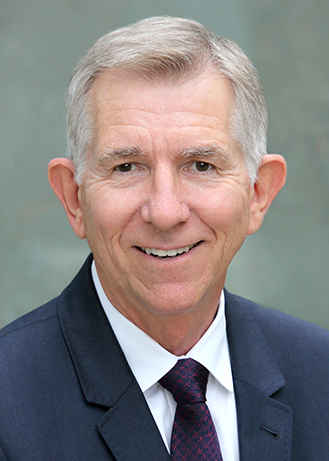Jacob Bernoulli was a very important contributor to our knowledge of math and statistics. Here is an explanation of how a hypothetical sequence of IFA MarketCoin flips illustrates a Bernoulli process and each flip as a Bernoulli trial, serving as an educational construct, not a predictor of market behavior.
Each IFA MarketCoin flip, "Up" or "Down" relative to the median return, is a Bernoulli trial with a 50% chance of each outcome. The sequence of coin flips, being independent, forms a Bernoulli process, aligning with probability theory. This means each flip is a simple Up-or-Down outcome and the sequence of flips follows Bernoulli's model of repeated trials.
Jacob Bernoulli was born in Basel, Switzerland in 1654 and died in 1705. He was a prominent mathematician and a member of the Bernoulli family, known for producing several notable mathematicians. His contributions span multiple areas, but he is most celebrated for his work in probability theory. His posthumously published book Ars Conjectandi (1713) is a seminal work that included the first version of the law of large numbers, which states that as the number of trials increases, the average of the results will tend to approach the expected value. This law is fundamental in statistics and underpins modern sampling theory.
Bernoulli also made significant contributions to calculus. He, along with his brother Johann, was one of the founders of the calculus of variations, and he discovered the mathematical constant e, which is central to exponential growth and decay. His work on permutations, combinations, and Bernoulli numbers further solidified his legacy in mathematics. The Bernoulli numbers, named after him, are a sequence used in number theory and analysis, particularly in deriving exponential series.
To explain how a sequence of MarketCoin flips is a Bernoulli process and each flip a Bernoulli trial, we first define these concepts. A Bernoulli trial is a random experiment with exactly two possible outcomes, typically labeled as "success" or "failure," with probabilities (p) (for success) and (1-p) (for failure). A Bernoulli process is a sequence of independent Bernoulli trials, each with the same probability distribution. It is a discrete-time stochastic process, often used to model repeated independent experiments, such as coin flips.
In the context of the MarketCoin:
- Each flip of the MarketCoin can represent a single day's stock market return relative to the historical median return.
- The MarketCoin has two sides: "Up" (above than the historical median) and "Down" (below than the historical median).
- For a broad market index, lets just assume the historical median daily return was approximately 0.05%. By definition, 50% of the time, the daily return was above this median (Up), and 50% of the time, it was below this median (Down).
Each MarketCoin flip is a Bernoulli trial because:
- It has exactly two possible outcomes: Up (success) or Down (failure).
- The probability of success (Up) is fixed at (p = 0.5), and the probability of failure (Down) is (1-p = 0.5), based on the median split.
- The flips are independent, as each day's return is not influenced by the previous day's return, assuming no autocorrelation in the returns, which is typical in Eugene Fama's efficient market hypotheses.
A sequence of MarketCoin flips is a Bernoulli process because:
- It consists of a sequence of independent Bernoulli trials.
- Each trial has the same probability distribution (Bernoulli with (p = 0.5)).
- The trials are repeated over time (e.g., daily returns), forming a discrete-time stochastic process.
Let's assume the probability of a positive daily return for a broad market index has been about 54%. But if you look at returns above the median return, it was 50%, supporting the Bernoulli process model for the MarketCoin. The median return is the middle value when investment returns are arranged in order from lowest to highest. It represents the point where half of the returns are higher and half are lower. This contrasts with the mean return, which is the average of all returns, and can be influenced by extreme values.
The connection to Jacob Bernoulli is direct, as the Bernoulli process and trial are named after him, reflecting his work in probability. The MarketCoin's binary categorization (Up/Down) mirrors the binary outcomes in Bernoulli trials, such as coin flips. In finance, this model is useful for risk analysis aiding in the understanding of the randomness of stock market returns.
This table highlights how each MarketCoin flip fits the Bernoulli trial definition and how the sequence forms a Bernoulli process, aligning with probability theory.
Comparison of Bernoulli Trial and Process Characteristics
|
Characteristic |
Bernoulli Trial (MarketCoin Flip) |
Bernoulli Process (Sequence of MarketCoin Flips) |
|
Definition |
Random experiment with two outcomes (Up or Down) |
Sequence of independent Bernoulli trials |
|
Outcomes |
Up (success, (p = 0.5)), Down (failure, (1-p = 0.5)) |
Series of Up/Down outcomes over time |
|
Independence |
Each flip independent of others |
All trials independent and identically distributed (iid) |
|
Probability |
Fixed at (p = 0.5) based on median split |
Same probability (p = 0.5) for each trial |
|
Examples |
Single day's return vs. the median return |
Daily returns over a period, categorized by median |
A sequence of MarketCoin flips is a Bernoulli process, with each flip a Bernoulli trial, due to its binary outcomes (Up/Down) and independence, with (p = 0.5) based on the median return split, reflecting Bernoulli's foundational concepts in probability.
Try our virtural coin flipper here.
This material is for informational and educational purposes only and does not constitute financial, legal, or investment advice. The concept of 'MarketCoin' is a hypothetical construct based on probability theory and is not indicative of actual market performance. Past performance is not indicative of future results. Please consult a licensed financial advisor for personalized investment guidance.
Sources used by AI:
- Wikipedia: Jacob Bernoulli
- Britannica: Jakob Bernoulli
- MacTutor History of Mathematics: Jacob Bernoulli
- Linda Hall Library: Jacob Bernoulli
- Wikipedia: Bernoulli Process















